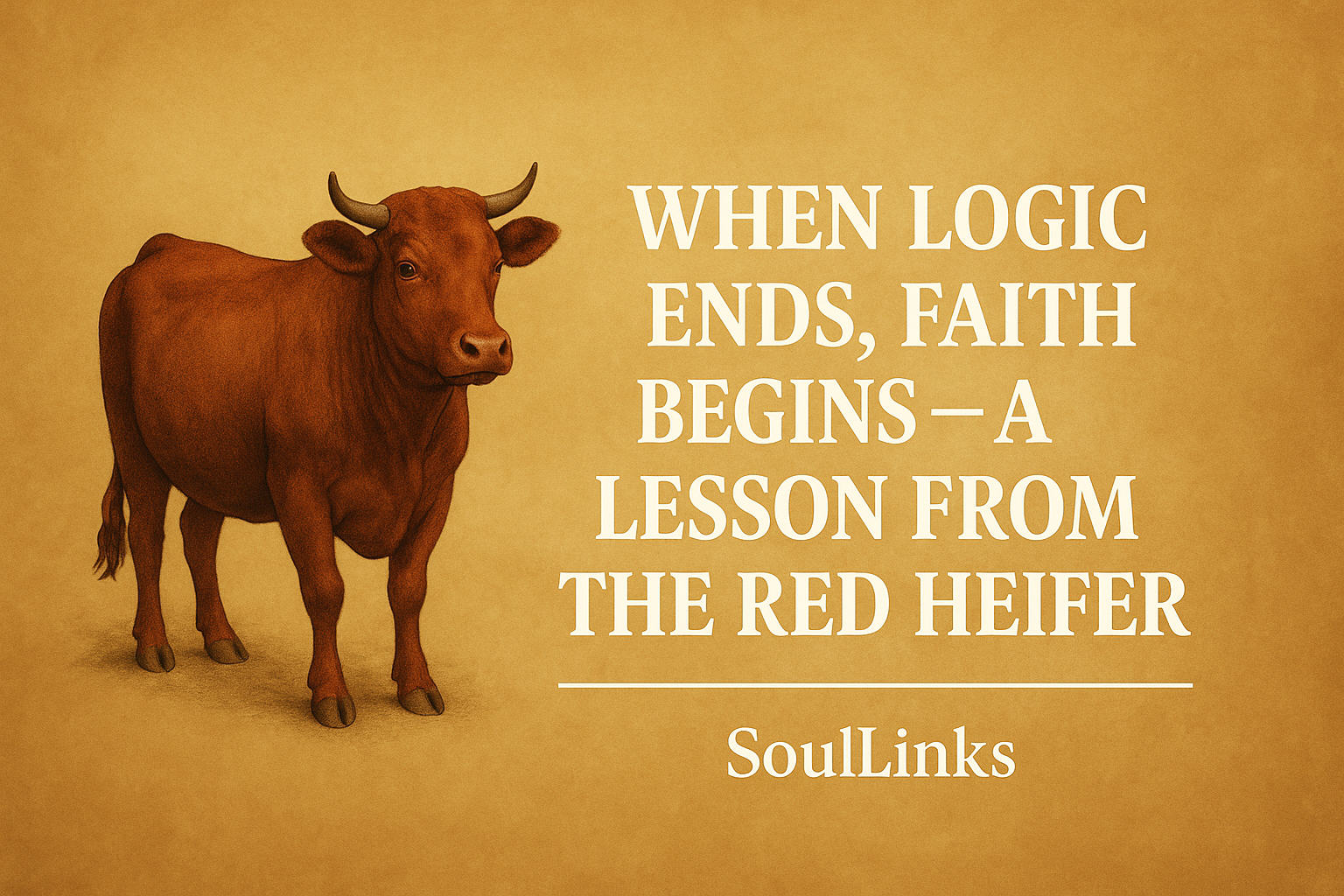Parshas Chukas | SoulLinks Weekly Torah Thought
This week’s parsha introduces us to one of the Torah’s deepest mysteries: the mitzvah of the Parah Adumah — the Red Heifer (Bamidbar 19:1–22). A perfectly red cow is slaughtered and burned, its ashes used to purify those who’ve become spiritually impure through contact with death.
But here’s the paradox: while this ritual purifies the impure, it simultaneously renders the kohen who performs it impure.
Even Shlomo HaMelech (King Solomon), the wisest of men, wrote, "I said I would become wise, but it is far from me."
A Deeper Message for Those Who Serve
For anyone who has ever held a service role, whether in the military, law enforcement, healthcare, or spiritual leadership, this paradox resonates deeply. We often carry the emotional burden of others, stay strong during traumatic moments, but feel the effects internally long after the crisis has ended.
Why do we sometimes feel impure or burdened by the very acts meant to uplift others?
Because spiritual work doesn’t follow human logic, we don’t always come out unscathed — but we still make a difference.
Faith Beyond Understanding
Chukas reminds us that not everything in life can be explained, and that’s okay. There is deep spiritual value in letting go of the need for answers and choosing trust instead.
There is holiness in simply showing up, even when we don’t understand why something happened or where it’s all heading. That, too, is part of the Divine mission.
A Soulful Challenge
This Shabbos, take a moment to reflect on something in your life that still doesn’t make sense. Instead of trying to explain it, offer it to Hashem (G-D) as a gift of faith. Say:
“I may not understand, but I trust You. I want to stay connected.”
Then, turn that trust into action:
In doing so, you bring purity into a world that is too often clouded by confusion.
With blessings for strength, clarity, and soulful resilience,
📖 Sources
Koheles (Ecclesiastes) 7:23
Rashi on Bamidbar 19:2 – “This is the decree of the Torah…”
Rambam, Hilchos Parah Adumah 3:3
Chassidus explanation – see Likutei Sichos Vol. 18, Parshas Chukas


